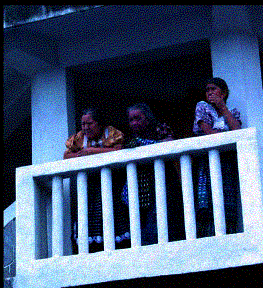|
|
Mexico Loosens Pension-Fund Rules
By John Lyons, The Wall Street Journal
May 5, 2004

Moving to strengthen its domestic financial system, Mexico will allow the nation's pension funds to invest part of their $38 billion of assets in global stock markets and bonds.
Broadening investment options will help provide the country's 32 million workers with better returns on their savings and more security by reducing exposure to the vagaries of the Mexican economy, regulators say. The funds, until now limited to holding domestic debt, are 82% invested in government notes -- more than twice the international average.
Mexico, which privatized its pension system in 1997, is seeking to incorporate the best examples of Latin American peers such as Chile, which reformed its pension system in the 1980s at the outset of a regional trend toward adopting free-market policies. Mexico is also seeking to distance itself from the mistakes of countries like Argentina, where the private pension funds were almost totally invested in state debt when the government went bankrupt in 2001, wiping out the savings of millions of workers.
"While it's almost unthinkable that something like Argentina would happen here, there is a great argument for diversification and spreading investment among securities that do not all have a direct correlation to Mexico," said Mario Gabriel, president of Mexico's National Retirement Savings Commission, called Consar.
Across Latin America, the strength of public and private pension systems has become a key issue for governments that have sought to foster economic growth through policies of selling off state assets, increasing trade and reducing deficits. Reforming the generous social-security systems of past regimes has posed enormous challenges for newly elected leaders who must persuade workers to give up benefits.
Brazilian President Luiz Inacio Lula da Silva has faced a backlash since persuading Congress to raise the retirement age and make other changes to shore up the country's state-run pension system. Mexico's President Vicente Fox is seeking similar concessions from some state workers who remain in government-operated pensions and have taken to the streets to oppose any change.
Mexico's private pension system has been a boon to the $600 billion economy, providing a source of credit for the government and blue chips like Cemex SA, the world's third-largest cement maker. But while Cemex, bread-maker Grupo Bimbo SA and others have benefited from their exclusive access to a captive market of Mexican pension funds, the deal hasn't been so great for the funds.
A situation where too many funds chasing too few Mexican issuers that qualify for pension-fund management has further lowered interest rates, already on the decline after years of economic stability, Mr. Gabriel said.
Under Mexico's plan, the pension funds, known locally as Afores, will be able to broaden their holdings by investing up to 20% of their holdings in foreign securities. Starting in December, workers will have the choice of investing in a traditional fixed-income fund or a new fund that blends fixed income and equity investments.
|
|



